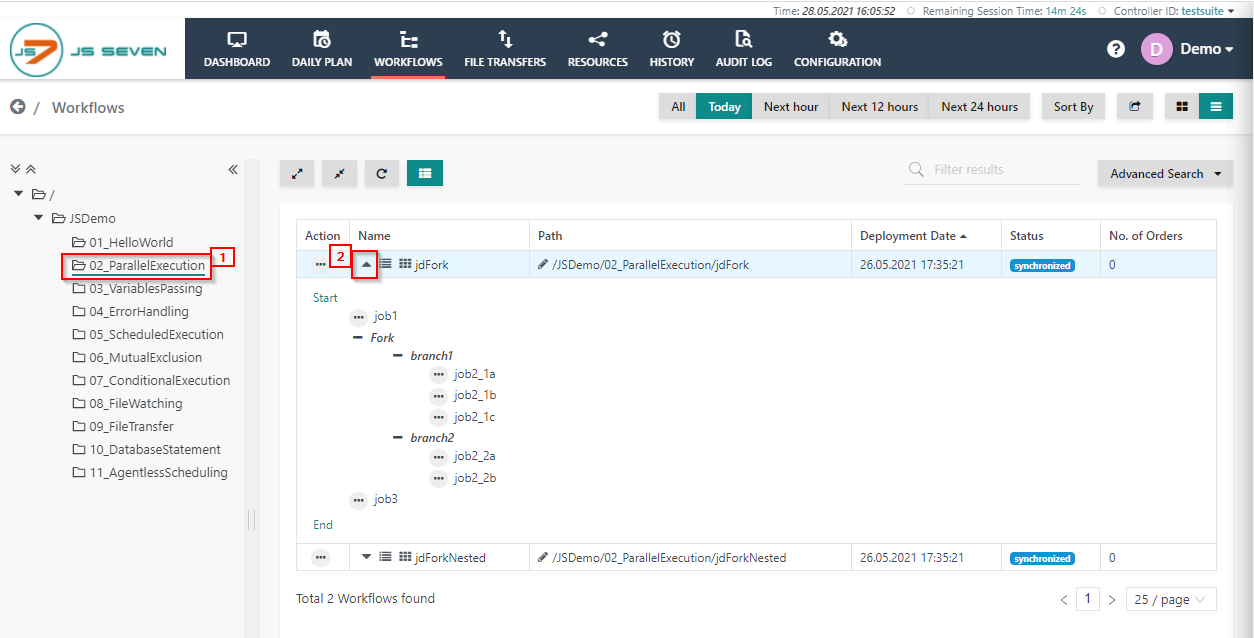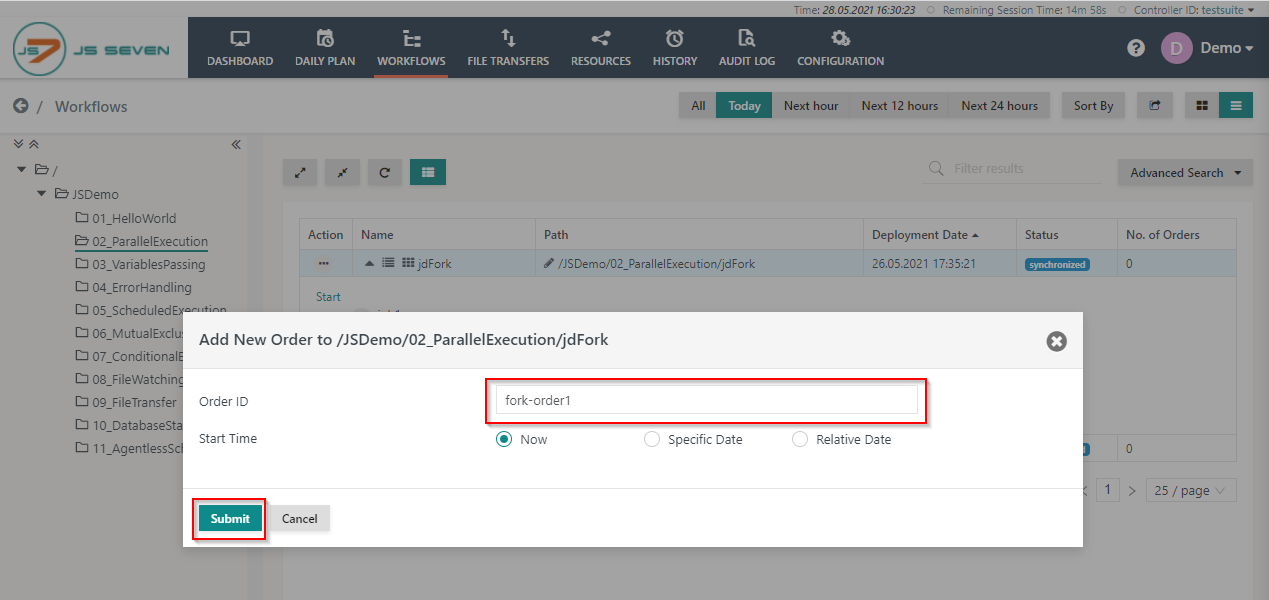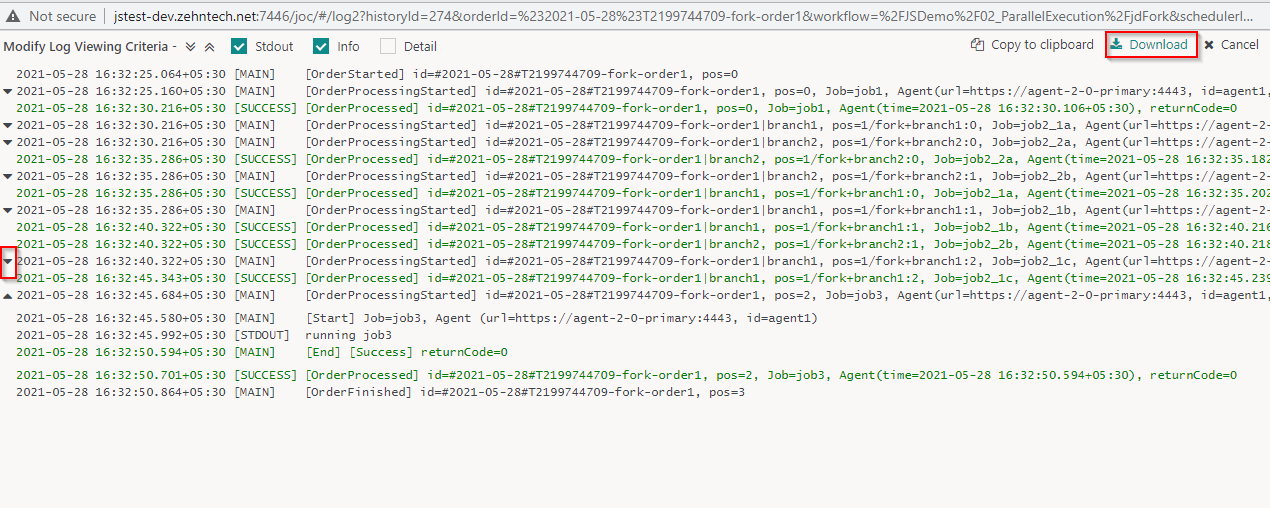Introduction
The JS7 - Fork-Join Instruction is used to execute jobs in parallel within a workflow. The Fork Instruction is used to create a number of parallel Branches. These may include further instructions and jobs. When an order is executed in a workflow it spawns child orders for the branches and waits for their completion. It is only after completion of the child orders that the parent order will continue with the Join Instruction.
Workflow
jdFork contains a simple example for parallel execution with two branches branch1 and branch2. When the order arrives with the Fork Instruction then its child orders pass both branches in parallel. The parent order then continues execution of the workflow after arrival of the child orders with the Join Instruction.
- Click the 02_ParallelExecution folder and expand the jdFork workflow.
- To add an order to the workflow click the action menu of the workflow and use Add Order from the drop-down menu.
- When clicking Add Order a popup window will appear.
- You can add an Order ID or leave the Order ID value empty: it will then use a default Order ID. Click the Submit button.
- To check the status of the order click the name of the workflow. This will make the Order History panel appear.
- In the Order History panel you can verify if the order is successful and has finished. Click the Order ID to see log output created by the jobs executed for this order.
- A log view window will open and the order log will be displayed. This log contains output to stdout/stderr from all the jobs executed by the order.
- You can download the log file by clicking the Download button at the upper right-hand corner of the log view window. Also, you can expand and collapse the individual job output using the chevron icons in the left-hand upper corner of the log view window.





